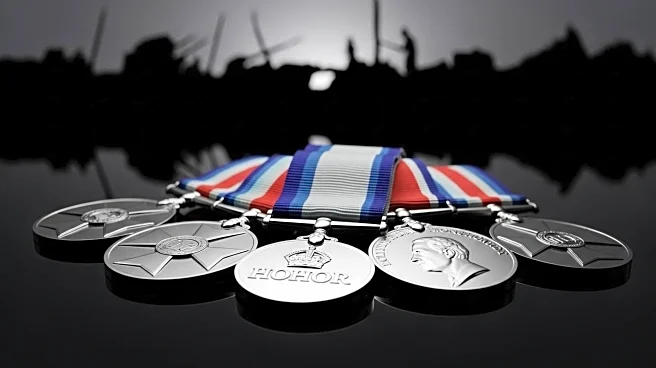What's Happening?
Secretary of War Pete Hegseth has announced that American soldiers who were awarded the Medal of Honor following the 1890 Wounded Knee Massacre will retain their medals. This decision has sparked controversy, as the massacre resulted in the deaths of between 250 and 300 Lakota Native Americans, along with at least 25 American soldiers. Hegseth's announcement follows a review ordered by President Biden's Defense Secretary Lloyd Austin, which concluded that the soldiers should keep their medals. Critics argue that this decision ignores the historical context of the massacre, which involved significant casualties among Native Americans, including women and children.
Why It's Important?
The decision to allow soldiers to retain their Medals of Honor from the Wounded Knee Massacre has significant implications for how American military history is interpreted and remembered. It highlights ongoing debates about historical recognition and the legacy of military actions involving Native American communities. Critics argue that retaining the medals perpetuates a narrative that overlooks the massacre's impact on Native Americans and may deter Native American recruits from joining the military. The decision also reflects broader discussions about how history is commemorated and the role of military honors in shaping national memory.
What's Next?
The decision by Secretary Hegseth is likely to provoke further debate and criticism from various stakeholders, including Native American groups, historians, and military veterans. There may be calls for additional reviews or legislative actions to address the historical recognition of events like the Wounded Knee Massacre. The controversy could also influence discussions about military honors and the criteria for awarding them, as well as broader conversations about historical accountability and reconciliation with Native American communities.
Beyond the Headlines
The decision to retain the medals raises ethical questions about how historical events are commemorated and the narratives that are prioritized in military history. It also underscores the cultural dimensions of military honors and the potential impact on Native American communities. The controversy may lead to increased advocacy for revisiting historical events and ensuring that diverse perspectives are included in the national narrative.










